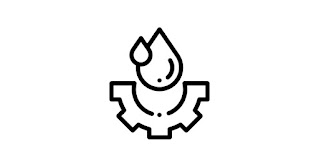1. If 850 kg liquid occupies volume of one cubic meter, men 0.85 represents its
(a) specific weight
(b) specific mass
(c) specific gravity
(d) specific density
(e) none of the above.
Ans: c
2. Free surface of a liquid tends to contract to the smallest possible area due to force of
(a) surface tension
(b) viscosity
(c) friction
(d) cohesion
(e) adhesion.
Ans: a
3. A bucket of water is hanging from a spring balance. An iron piece is suspended into water without touching sides of bucket from another support. The spring balance reading will
(a) increase
(b) decrease
(c) remain same
(d) increase/decrease depending on depth of immersion
(e) unpredictable.
Ans: c
4. Falling drops of water become spheres due to the property of
(a) adhesion
(b) cohesion
(c) surface tension
(d) viscosity
(e) compressibility.
Ans: c
5. A liquid would wet the solid, if adhesion forces as compared to cohesion forces are
(a) less
(b) more
(c) equal
(d) less at low temperature and more at high temperature
(e) there is no such criterion.
Ans: b
6. If cohesion between molecules of a fluid is greater than adhesion between fluid and glass, then the free level of fluid in a dipped glass tube will be
(a) higher than the surface of liquid
(b) the same as the surface of liquid
(c) lower than the surface of liquid
(d) unpredictable
(e) none of the above.
Ans: c
7. The point in the immersed body through which the resultant pressure of the liquid may be taken to act is known as
(a) meta center
(b) center of pressure
(c) center of buoyancy
(d) center of gravity
(e) none of the above.
Ans: b
8. The total pressure on the surface of a vertical sluice gate 2 m x 1 m with its top 2 m surface being 0.5 m below the water level will be
(a) 500 kg
(b) 1000 kg
(c) 1500 kg
(d) 2000 kg
(e) 4000 kg.
Ans: d
9. The resultant upward pressure of a fluid on a floating body is equal to the weight of the fluid displaced by the body. This definition is according to
(a) Buoyancy
(b) Equilibrium of a floating body
(c) Archimedes’ principle
(d) Bernoulli’s theorem
(e) Metacentric principle.
Ans: c
10. The resultant upward pressure of the fluid on an immersed body is called
(a) upthrust
(b) buoyancy
(c) center of pressure
(d) all the above are correct
(e) none of above is correct.
Ans: b

